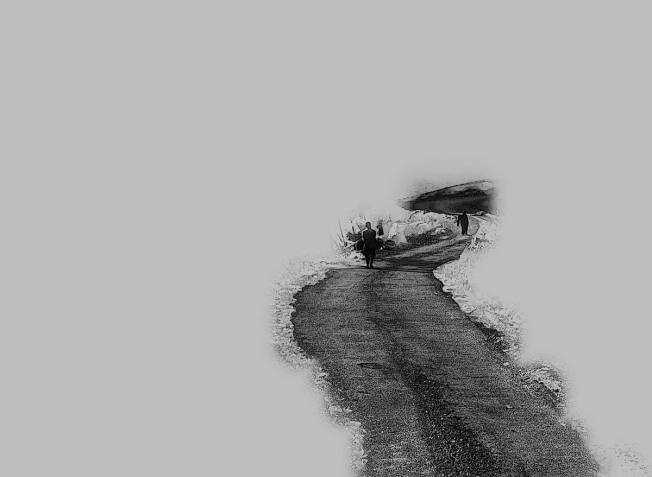The winds eventually lost strength. Silence shadowed the trees like scares on sunburnt faces, which too would grow out soon. The air around was surrounded with thickness of cold. It reeled under the weight of clouds that had gathered for long in weeks of winter’s short daybreaks and endless nights.
The snow was the respite that everyone’s been praying for.
It snowed when the road seemed insurmountable. First on the sides, on the trees and on the mountains. The gray was slowly being washed away by snowflakes. Everything living or dead was covered with a patina of white much like paint of morality which some believed had crept into hearts of a few.
But on that day, road lost its path for travelers. Somewhere in those sharp turns over the mountainous terrain it turned itself into the mountain, tired of lost travelers. And on that day, a man brave enough to act lost walked on the road. Some said he had lost his soul and was searching for it. He walked tall covered in black.
But his heart cried and eyes choked. He couldn’t see white, all he ever saw was red, blood red. On that day he saw red everywhere even in the glowing snowflakes. He was trying to run away. On that day snow on road showed him the path away from chaos of screaming walls, away from flickering nightmares, away from vortex of spieled confessions. He walked on, as if this was the end he prayed for all his life.
Snow slid off his umbrella with as equal an ease as it fell from sky. His boots crushed fluffy fresh snow squeezing all color out of it. He waited for none.
In the landscape of white, darkness couldn’t turn him away. He walked on.

